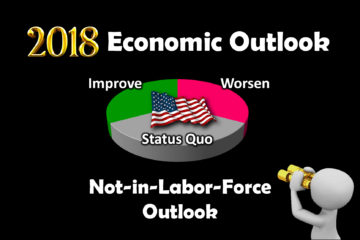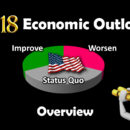
News on Jobenomics Baltimore
‘Jobenomics Baltimore City’ Seeks Restoration of Baltimore’s Labor Force
Earlier this year, the Jobenomics Baltimore City initiative, part of the Jobenomics National Grassroots Movement is trying to achieve with local communities, was contacted by West Baltimore community leaders in regard to developing a Jobenomics Baltimore small business and job creation plan.
Based on statistical research, neighborhood tours and meetings with West Baltimore community leaders, the Jobenomics Baltimore City team agreed to an overall goal of restoring Baltimore City’s labor force, which would go a long way to increasing incomes, alleviating poverty and reducing crime.

The Jobenomics team decided on an employment goal of 100,000 net new inner-city jobs by 2026, which would reverse the downward trend of 89,000 job losses since 1990. The team also agreed on the principle that jobs do not create jobs, businesses do—especially small businesses that can support the needs of the local community. Consequently, it was decided that the Jobenomics Baltimore City’s small business creation effort should focus primarily on minority, women and new workforce entrants—the demographics with the highest need and potential in West Baltimore and the City at large.
In addition to jobs, Jobenomics Community-Based Business Generators should be able to create as many as 2,000 new small businesses and significantly more self-employed businesses. The Business Generators will also provide post-startup support that will increase the lifespans of new business and support their growth into medium and large-sized businesses.
Baltimore City does not lack human resources to fulfill the Jobenomics Baltimore City plan. Over the next decade, a large percentage of the City’s 96,000 new workforce entrants, now aged 6 to 18, will enter the workforce ready for meaningful careers. A high percentage of Baltimore City’s 62,000 unemployed who are looking for work may be able to finally land a job, the right job. A reasonable percentage of Baltimore City’s 182,000 able-bodied adults who are no longer looking for work may decide to change their minds.
The Jobenomics Baltimore City plan has four major objectives. Out of the 100,000 net new jobs:
- 35 percent will be related to Manufacturing with emphasis on developing Under Amour’s indirect workforce;
- 26 percent to Healthcare and Social Assistance with emphasis on healthcare, eldercare and childcare;
- 24 percent to Demolition and Construction with emphasis on restoring 30,000 city-owned derelict homes and properties; and
- 16 percent to the emerging Digital Economy with emphasis on electronic/mobile commerce and on-demand economy initiatives (e.g., Uber, Airbnb, etc.).
Jobenomics estimates that the economic impact could exceed $6 billion per year. 100,000 new jobs at an average salary of $50,000 are worth $5 billion a year to Baltimore City alone. Construction, tourism, recycling, renewable energy and light industrial projects would create numerous small businesses providing sustainable jobs and careers over the long-term.
As we begin a New Year and a New Administration, locally and nationally, let’s dream and plan big solutions to long-standing problems. This is a new day; let’s address our problems in a new way. Developing a comprehensive jobs plan is the place to begin.
The Jobenomics Baltimore City plan desires to change last year’s dialogue from a project-by-project approach to a more strategic small business and labor force development approach focused on developing skills for those at the bottom of Baltimore’s economic pyramid.
The Rev. Dr. Alvin C. Hathaway Sr. is the Senior Pastor of Union Baptist Church.
Recommended reading
- Casinos Not On Gamstop
- Casino Non Aams
- Casino Not On Gamstop
- Casino Non Aams
- UK Casinos Not On Gamstop
- Non Gamstop Casinos
- Non Gamstop Sports Betting Sites
- Online Casinos UK
- Non Gamstop Casino Sites UK
- Non Gamstop Casino Sites UK
- Non Gamstop Casino Sites UK
- Slots Not On Gamstop
- Non Gamstop Casino Sites UK
- Non Gamstop Casino Sites UK
- Non Gamstop UK Casinos
- Non Gamstop Casino Sites UK
- Top Casino Sites UK
- Best Casino Sites UK
- UK Casino Sites Not On Gamstop
- Meilleur Casino En Ligne
- Meilleur Casino En Ligne
- Gambling Sites Not On Gamstop
- Best Non Gamstop Casino
- UK Casino Sites Not On Gamstop
- Gambling Sites Not On Gamstop
- Crypto Casinos
- Jeux Casino En Ligne
- Meilleur Site Casino En Ligne Belgique
- I Migliori Casino Non Aams
- ライブカジノ ポーカー
- 本人 確認 不要 オンライン カジノ
- 코인카지노
- букмекерские конторы
- カジノ バカラ
- ライブカジノ バカラ
- Casino Avec Bonus Sans Depot
- Jouer Au Casino En Ligne
- Casino En Ligne
- Casino En Ligne Francais
- Casinos En Ligne



















